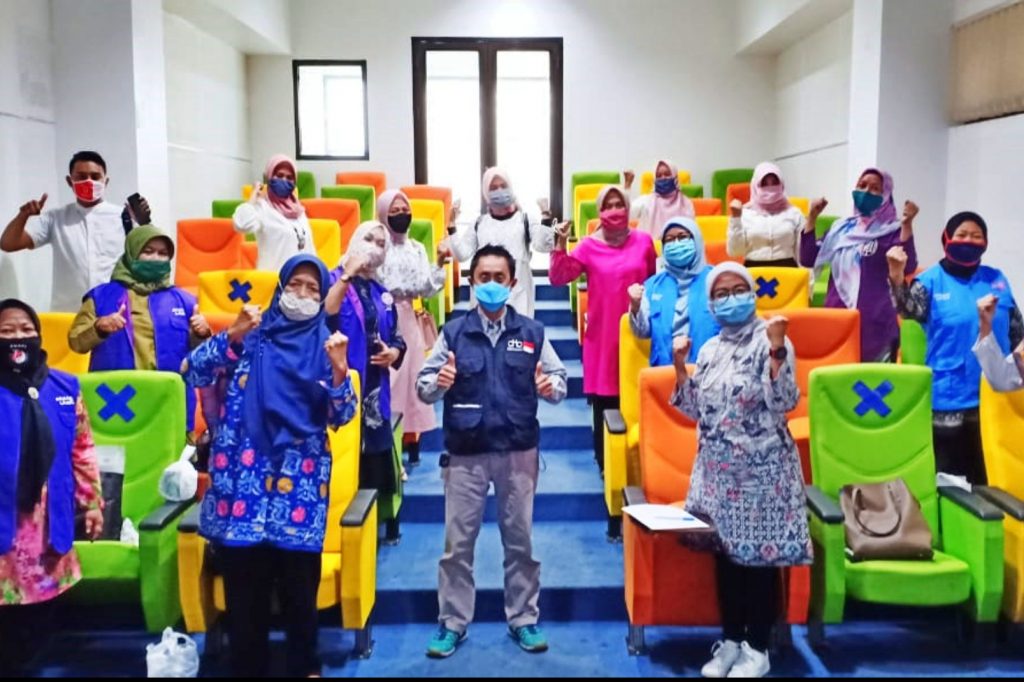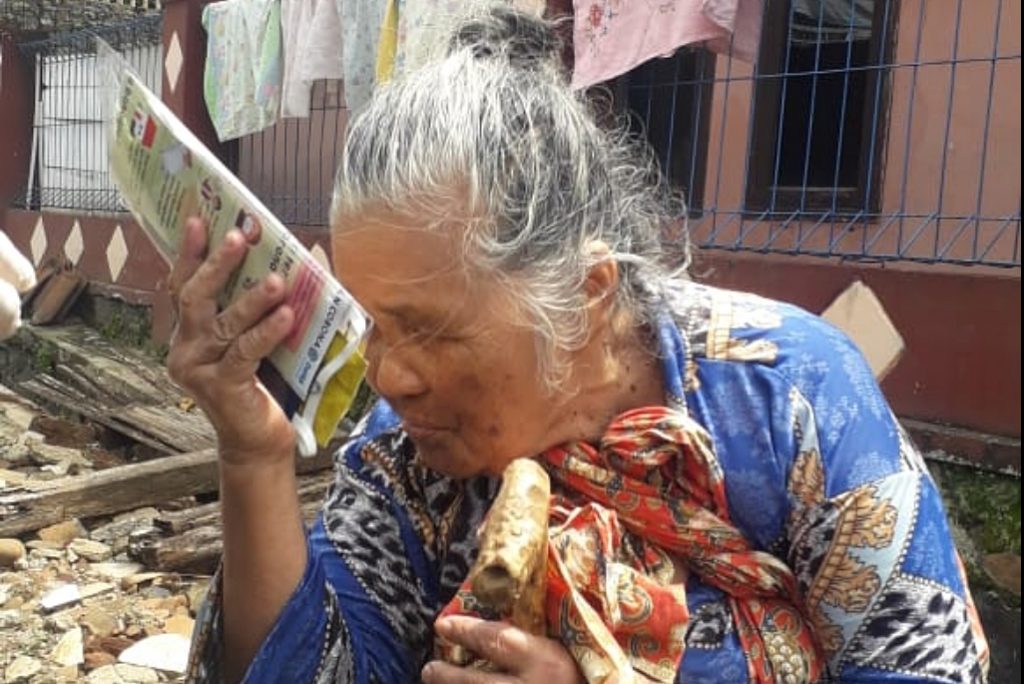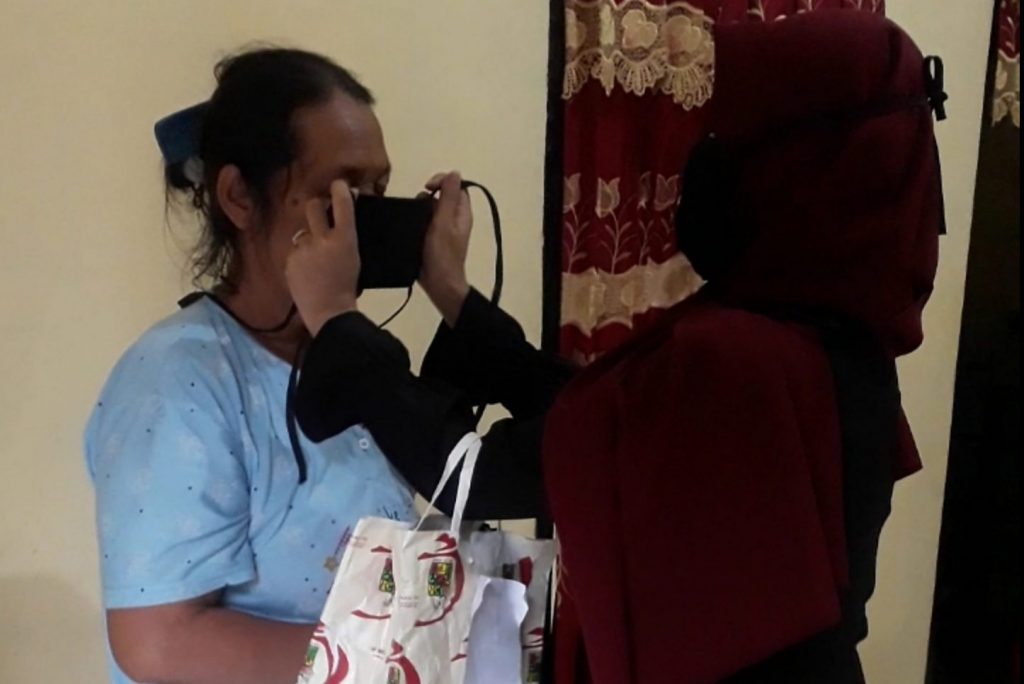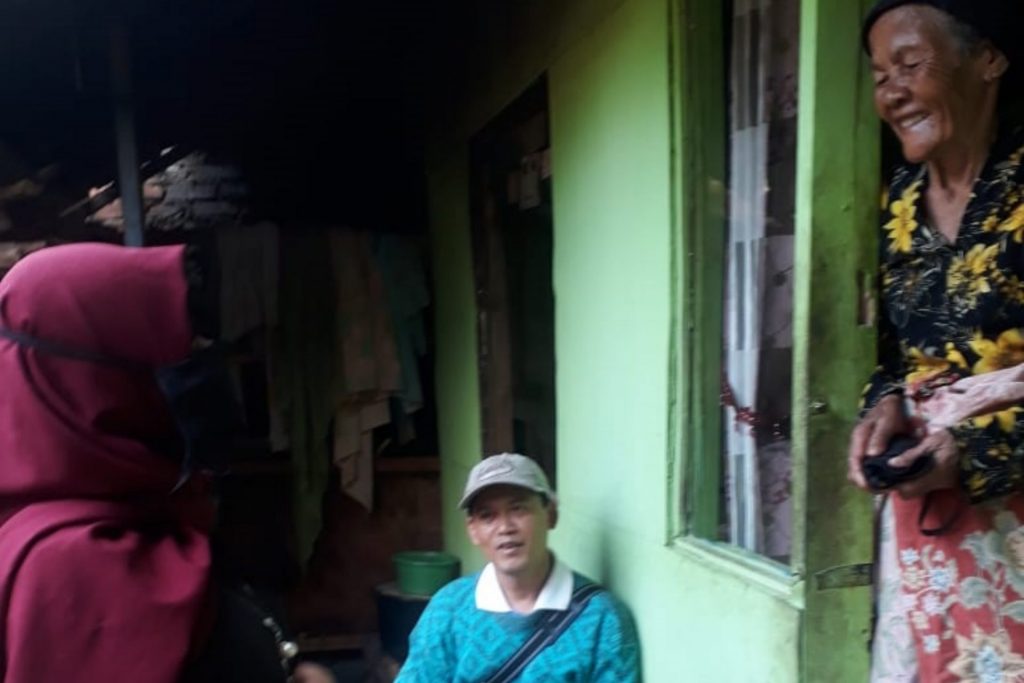2021 Special Prize for COVID-19 Response
The COVID-19 pandemic has taken a heavy toll on Indonesia. By the start of March 2021, there had been 1.3 million confirmed cases with more than 37,000 deaths, and while all age groups are at risk of contracting COVID-19, it is particularly dangerous to older people due to physiological changes that come with aging and potential underlying health conditions.
The province of West Java has had the second highest number of COVID-19 cases in Indonesia, and studies there found that the pandemic has significantly affected the daily lives of older residents. Older people reported experiencing heightened levels of anxiety, fear, and isolation. And in addition to the psychological burden, many older people who have chronic diseases have stopped taking their medication because they are afraid to go to healthcare facilities to continue treatment.
The West Java Chapter of the nonprofit community organization, Indonesia Ramah Lansia (IRL), was established in 2019 to carry out a range of programs for older residents in the community, including social activities, a caregiver training program, and the development of elderly-friendly villages. As the pandemic began to impact its community, IRL West Java launched comprehensive and sustainable assistance efforts to support those covered by their chapter.
They quickly worked to identify the needs of the older residents based on their physical and socioeconomic conditions. As a result, IRL West Java developed a three-pronged approach that emphasized companionship for the elderly in a way that addresses the following:
Biological & physical needs by providing older people with nutritious meals and exercise to improve their health performance.
Psychological needs by offering safety and companionship to support the mental health of older people
Sociocultural needs by utilizing the local wisdom of the Indonesian people, namely “Gotong Royong” (mutual cooperation), to build a sense of mutual care and provide assistance to older people while respecting them as elders in society.
In April 2020, IRL West Java began an elderly companion program where trained local volunteers regularly visit the homes of older people in their areas. Having community members serve as volunteers minimizes outsider contact and thus limits the risk of spreading the virus. Drawing on the IRL’s existing senior schools, they were able to recruit volunteers who were instructed in the proper way to make contact with the older people they are helping in order to avoid the risk of transmission, and who were trained to assist with health monitoring and to provide psychological support to the elderly as well.
During home visits, the volunteers carry out a number of tasks. They monitor vital signs (blood pressure, temperature, etc.) and record health complaints, which are then reported to health workers for further action. In cooperation with the Puskesmas (community health center), they work to ensure that older persons with chronic diseases are getting the medicine they need, and they distribute multivitamins recommended by geriatric doctors. They also provide additional nutrition for those older persons who are physically weak. The visits also include guidance on how to do at-home exercise to improve immunity, balance, and physical fitness.
These visits also offer an opportunity to educate the community about the pandemic and how to prevent the spread of COVID-19. Volunteers distribute educational flyers and masks, and they teach older people how to wear the masks correctly. They also use social media platforms that are popular among older people provide education and dispel erroneous information that is circulating in the community. This is particularly important since there are still some regions that think that the COVID-19 pandemic only exists in big cities.
Finally, IRL West Java has been working with the private sector and several community organizations to conduct a fundraising drive to support those in need. In addition to seeking funding, their goal is to educate and raise awareness among the entire community about the need to protect and honor their older neighbors.
KEYS TO SUCCESS
- IRL West Java’s quick response to the onset of the pandemic allowed them to assess the needs of the older people they serve and design an effective early response.
- Their existing community-based activities allowed them to recruit volunteers quickly who are committed to helping others.
- Collaboration with the local community health centers lets the volunteers help resolve medical issues the older residents might have and ensure that they continue to take medications, thus mitigating the impact of the pandemic on continuity of care.
- In addition to providing masks to protect residents, the initiative provided information to dispel the numerous rumors and misinformation that were circulating about the virus and to stress the importance of taking precautions, particularly for high-risk older persons.





